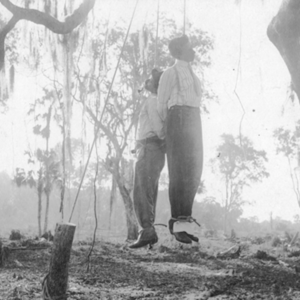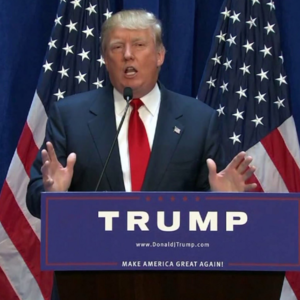Born and raised in Lagonegro, a little village in the South of Italy, Chef Luigi came to America by chance and settled in Washington, D.C. at a time when the city was hardly an exciting place to work for a restaurateur. “When I saw what this city’s restaurants were offering, I realized there was so much more I could do,” Luigi tells us. And as a matter of fact, he did!
You chose: hillary clinton
-
-
Voting is a private matter; that's why there are curtains on the polling booths. So when I-ITALY Magazine asked for reflections upon my preference - and vote - for Donald Trump, I was hesitant, but agreed nonetheless to present what would be a counter opinion to many they had received.
-
President Trump’s recent Executive Order can be seen in two very different historical perspectives. On the one hand, it is in keeping with a long tradition of demonizing immigrants—something Italians, among others, have long experienced in the past. On the other hand, Americans often point with pride to the history of accepting immigrants, as embodied (literally) in the figure of the Statue of Liberty in New York Harbor. Italian Americans have a particular responsibility in this new (or old) political landscape.
-
Fatti e StorieQuella di Sergio Romano è una delle voci più autorevoli e ascoltate nel panorama italiano. Storico, commentatore e analista politico, è stato Ambasciatore d’Italia a Mosca negli ultimi anni dell’Unione Sovietica. Interrotta, per sua scelta, la lunga carriera ai vertici della diplomazia, si è dedicato allo studio e all’insegnamento. Il suo sguardo, anche quando non si condividono le sue opinioni, è illuminante, chiarificatore, a volte anticipatore. Nella nostra intervista parliamo di America, di Europa e di Putin, a cui è dedicato il suo ultimo libro.
-
Sergio Romano carries a lot of weight on Italian turf. The historian, political analyst and commentator served as the Italian Ambassador to Moscow at the twilight of the Soviet Union and later suspended his diplomatic career to focus on research and teaching. Even those who differ in opinion admit his viewpoint is always illuminating, informative, occasionally prophetic. We sat down with him to talk about America, Europe and the subject of his latest book: Putin
-
Why did so many Italian Americans vote for Trump and how might they be rewarded for their fealty to him?
-
The day after the Presidential election I was in England to deliver the keynote address at the University of Central Lancashire’s “Fieldwork Photography Symposium.” I had already voted for Hillary Clinton on the Working Families Party line by absentee ballot from Brooklyn. My opening remarks were “Yesterday there was a battle in the U.S.A. between the Anti-Christ and the Whore of Babylon, and the Anti-Christ won.” Given that many in the audience had mistakenly voted for Brexit and were now suffering the consequences of populism, I knew they’d understand the metaphor.
-
Op-EdsDonald Trump’s electoral victory created much clamor in Italy as elsewhere. Two subjects seem to be particularly relevant to the Italian public opinion as reflected by the country’s major media outlets: the populist revolt against the establishment and the disconnection of pundits and opinion makers from the true feelings of “the ordinary people.” A cursory look at these first reactions shows both the differences and some striking similarities between the US and Italian political debates.
-
A heartfelt comment by the Founder and Chair Emerita of the National Organization of Italian American Women. "For me the most disturbing characteristic of this campaign was Trump’s attitude toward women. He seems to see them as objects, not as individuals in their own right...less intelligent, inferior creatures subject to the convenience and entertainment of men like him. He ran against one of the smartest most knowledgeable women in this country, a woman arguably better trained and prepared for the job than any man ever to place his hand on that iconic bible. It’s sad to see that sexism is still very much alive."
-
Le elezioni viste dall'Italia. Donald Trump ha voltato pagina, ha scritto una pagina di storia nuova, mettendo nel dimenticatoio il paesaggio politico tradizionale del ventesimo secolo







































